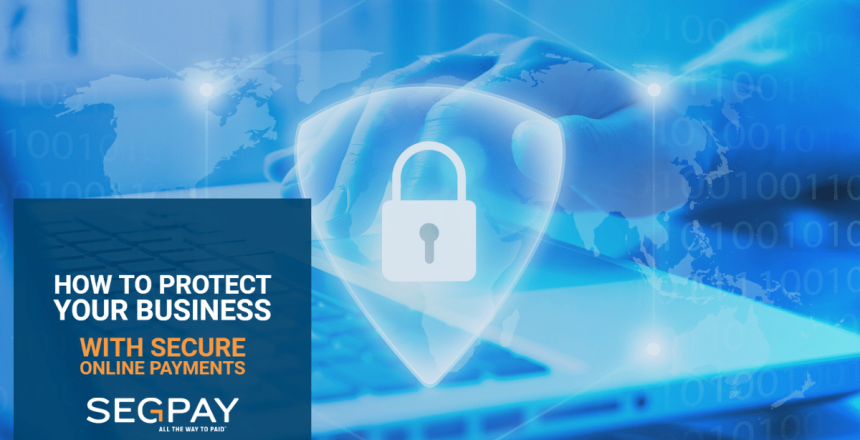Key Takeaways
- Ensuring a robust model to facilitate secure online payments allows e-commerce brands to thrive and ensure legal compliance.
- We cannot engage with any payment process – the service provider must be reputable, reliable, and seasoned.
- Facilitating online payment without state-of-the-art encryption tools is an invitation to cybercriminals, inviting them to prey on existing vulnerabilities.
- A customized and tailored online payment solution is a necessity, not a luxury.
- 5 minute read
Did you know e-commerce losses from online payment fraud are expected to soar by more than $200 billion by 2025? The burgeoning tide of cybercrime has alarmed businesses worldwide, emphasizing the urgency to establish credibility with a secure online payment system.
A study conducted by Juniper Research reveals that businesses operated in airline ticketing, banking, e-commerce, and money exchange sectors will incur cumulative losses of over $200 billion between 2020 and 2024. These staggering losses stem from online payment frauds – just one of the many cybersecurity threats modern-day companies must monitor and mitigate.
Rising Tide of Online Payment Frauds
Online payment frauds are becoming increasingly sophisticated, with multifaceted attack vectors demanding high-tech defenses to safeguard businesses and their consumers. Statistics demonstrate the costs of global cybercriminal activity are likely to grow 15% each year, soaring to a staggering $10.5 billion a year by 2025.
Modern-day consumers are increasingly concerned about data privacy, especially while making online payments and e-commerce buying decisions. A survey conducted by Norton in 2021 reveals that over 60% of consumers are alarmed about their privacy and hesitant to share financial information while shopping online. E-commerce brands that need to prioritize consumer safety with secure payments have much to lose moving forward.
Read on to learn how we can protect our businesses with robust infrastructure and a secure online payment solution.
Finding a Reliable Payment Processor
E-commerce businesses rely on reputable payment processors as intermediaries between merchants, retailers, and financial institutions. These service providers equip online brands with secure payment processing solutions to ensure legal compliance and consumer data safety. But we can’t rely on any intermediary with vast experience designing online payment solutions.
Instead, we need to find a reliable and seasoned payment processor who can truly capture the needs of our e-commerce models and design a customized solution to accept payments online. Payment processors do more than manage card transactions. These firms equip businesses with state-of-the-art security solutions to prevent phishing attacks and ensure Payment Card Industry (PCI) compliance.
Features that Secure Digital Payment Solutions
To find a competent and credible payment processor, we must develop an in-depth understanding of the crucial features that define a secure online payment model.
Encryption
Encryption is the fundamental layer of data safety, protecting private and sensitive information with codes to veil data and preventing cybercriminals from decoding it. Hackers prey on unprotected data and encryption, such as public and symmetric key encryption, and mask sensitive information with multiple layers of protection.
Public key encryption is popular for brands looking to accept payments online through their e-commerce apps and sites. It encrypts sensitive information with two keys: the public key and the private key. Data cannot be decrypted without using both keys, equipping e-commerce sites with robust payment processing security.
Symmetric key encryption is more suitable for databases that handle vast amounts of data, such as banks and financial institutions, protecting them against data theft and identity theft.
Secure Socket Layer (SSL)
If we cannot offer our consumers a safe and trusted digital environment, we cannot encourage them to purchase online. A secure socket layer (SSL) enhances payment processing security by preventing security breaches and ensuring safe data transmission.
It monitors all data requests and submissions to facilitate a secure transfer of data between the various parties involved in making and processing online payments. Operating an online shopping platform without a credible SSL certification is akin to attracting a hefty lawsuit. Modern-day consumers are much more aware and likely to shop from sites with adequate SSL certification.
Secure Hypertext Transfer Protocol (S-HTTP)
Another crucial metric for facilitating secure payments, S-HTTP equips online brands with robust security that authenticates data transmission with digital signatures and public-key encryption. Most cybersecurity experts consider S-HTTP more reliable than SSL, especially for banks and financial institutions.
Secure Electronic Transaction (SET)
SET is a more innovative solution to ensure the data safety of all parties engaged in accepting online payments – businesses, consumers, and financial institutions. It offers cutting-edge protocols that mask sensitive information like credit card numbers and financial data. More importantly, SET prevents PI information from being revealed alongside deterring modifications during data transmission.
The Significance of Compliance
Businesses operating in the digital arena must ensure robust compliance with all security regulations and payment processing programs. The Payment Card Industry Data Security Standard (PCI DSS) is a guide for security regulations endorsed by multiple financial institutions, including American Express, Mastercard, and Visa, to establish the operational and technical foundations of secure online payment methods.
Tailoring their digital payment solutions to compliance programs allows brands to build a safe environment for their consumers, securing sensitive financial data against data theft and online fraud. PCI compliance is not a luxury; it is mandatory before accepting any form of financial information or online payments.
A reliable and tech-savvy payment processor equips our e-commerce payment models with simple yet high-tech features to detect bots and prevent cyber criminals from decrypting sensitive data. For instance, cybersecurity experts equip businesses with digital signature verification systems to filter out potential threats and prevent unwarranted users from accessing the database.
Experts recommend adopting CAPTCHA programs and E-signatures to prevent automated hacking and phishing systems from capturing customers’ financial information and login details.
Final Thoughts
As business owners operating in the digital arena, we must develop a solid understanding of secure online payment methods to satisfy consumer needs. Consumers typically shop using ACH, credit cards, debit cards, mobile wallets, payment apps, and wire transfers. Of all these methods, cybersecurity experts believe that credit and debit cards are the safest for online payments.
Credit and debit cards are protected with multiple layers of encryption and security, making them resilient against fraudulent activities and phishing attacks. However, once a card is compromised, it heightens the risk of data breaches for both the consumer and the merchant.
Want to learn more about how you can protect your business with secure online payments?
Contact us today, we’d love to chat with you about how Segpay can help your business stay protected while processing payments. It’s another way we are here for our merchants All the Way to Paid ™. Reach out to us with your questions at [email protected]



